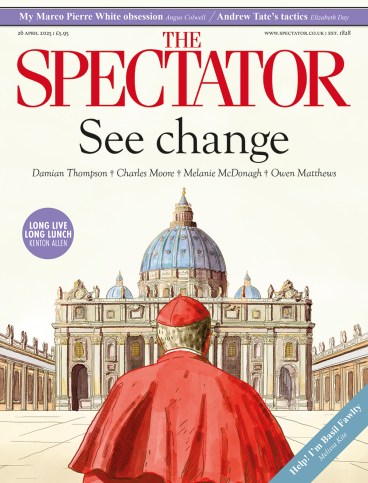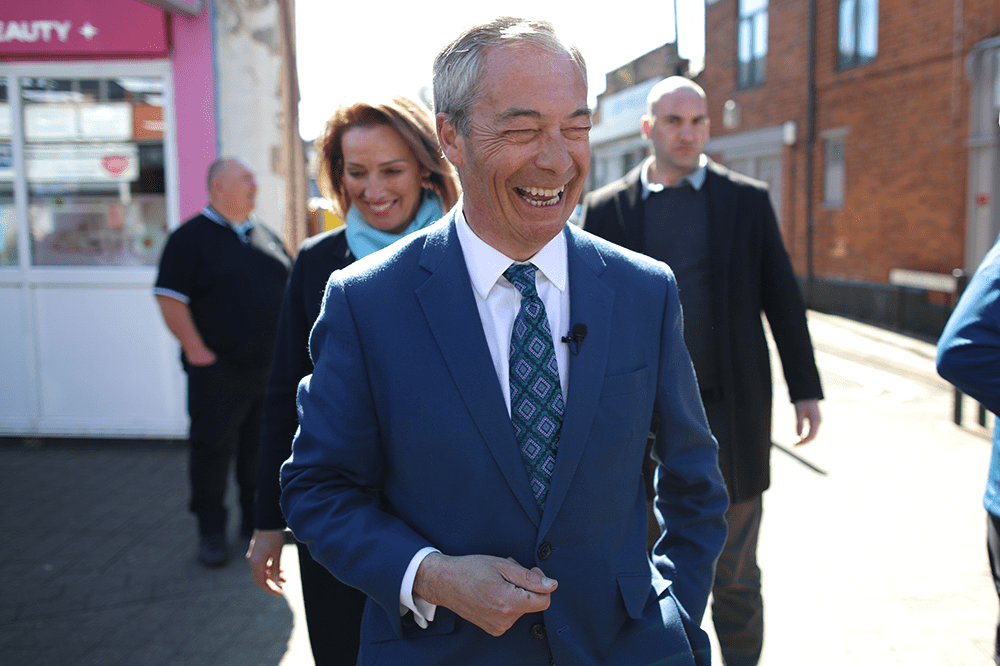
It is an irony of Brexit that, since we left the EU, British politics has become more European. The local elections on Thursday will put another nail in the coffin of the two-party system that has dominated the UK for 100 years. Labour and the Conservatives now poll a combined 45 per cent of the vote: half the country want someone different. ‘Welcome to the age of five-party politics,’ says one Tory candidate.
Alongside 1,600 council wards up for election, there are four metro mayoralties too. The reintroduction of first-past-the-post means that contests in the west of England, Cambridgeshire and Hull are four-horse races. Ten years ago, Ed Miliband’s ‘35 per cent’ strategy for victory was widely mocked; now it would guarantee a landslide.
No one has done more to usher in this era than Nigel Farage, the only man to best the two main parties in a national election since Herbert Henry Asquith’s day. Reform’s campaign for the locals has been an effective mix of old and new. Farage has barnstormed across every county up for election while his staff have fired off 3,000 Freedom of Information requests to collect a dossier of local government waste. ‘It’s really cut through with the local press,’ claims one campaigner.
Reform is drawing inspiration from Europe, too – particularly the Five Star Movement, which won Italy’s elections in 2018. Five Star’s tactics were drawn from Blue Ocean Strategy, a business textbook which argues that growth comes from finding new market spaces rather than competing in overcrowded industries. Copies have been circulated in Reform headquarters. Victories in 350 or so wards and the Runcorn by-election would make Reform the big winner of May 2025.









Comments
Join the debate for just £1 a month
Be part of the conversation with other Spectator readers by getting your first three months for £3.
UNLOCK ACCESS Just £1 a monthAlready a subscriber? Log in